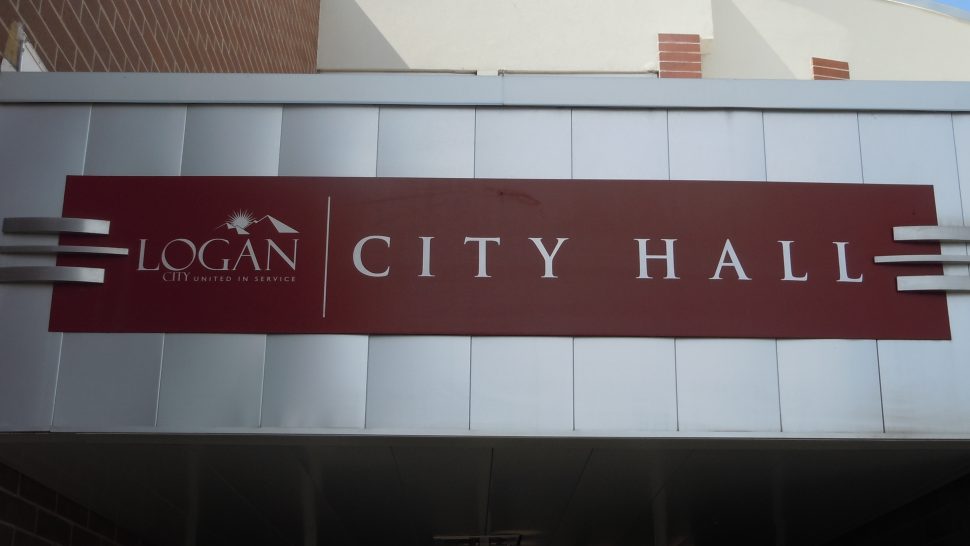During their regular meeting Tuesday, members of the Logan City Council reacted to a report from a citizens committee that urged them to adopt by-district voting for council seats in the future.
LOGAN – Members of the Logan City Council are taking a recommendation from a committee of local residents that the city move to by-district voting for its municipal council with a grain of salt.
At their regularly scheduled meeting Tuesday, the city council members politely thanked the neighborhood volunteers for their report and then went to great lengths to emphasize that they were by no means bound by its recommendations.
“My hope was that this group of individuals could do some information gathering on behalf of the council,” said Amy Z. Anderson who, as council chair in 2020 originally organized the citizens committee to investigate the issue of by-district representation on the municipal panel. “The intent was that this would just be a report, because it really is the purview of the council to recommend any change (in the city voting system) before moving forward.”
As a guest on KVNU’s For the People program Monday, council member Jeannie Simmonds pointedly declared that the city is not bound by the committee’s findings.
On the same program, City Council Chair Mark Anderson said that, for him, the issue of district representation is a philosophical question.
But former city council member Jess Bradfield counters that the issue of voter district representation is “no longer a matter for philosophical discussion.”
“To my knowledge,” Bradfield said, after monitoring the Tuesday meeting of the city council via ZOOM technology, “there’s not a single city in the United States now contemplating a move from a voter district system to at-large representation in municipal government. But there are hundreds of lawsuits now in progress aimed at forcing cities to shift to by-district voting for city representatives.”
Bradfield now holds the post of Cache County Clerk.
In the report recently delivered to the Logan City Council, representatives of five of the city’s six neighborhoods supported the idea that implementing by-district voting would facilitate broader representation on the city council.
“Doing so,” their report contends, “would come at no additional cost to the city and will increase the likelihood that the composition of the council more accurately reflects the city’s population, a population that is expected to grow and become more diverse as time goes on.”
Only Kent Field, representing the affluent Hillcrest area, dissented from that opinion.
Local debate over the issue of municipal representation began in October 2019. After a contentious meeting during which Bradfield urged that panel to voluntarily adopt an ordinance implementing by-district election of council members, the Logan City Council agreed to form a citizen committee to evaluate voting systems.
Critics of the city’s at-large voting system, which was implemented in 2009, contend that residents of Logan’s populous and diverse Bridger, Ellis and Woodruff neighborhoods are inadequately represented because the city council has been dominated by successful candidates from the Hillcrest and Wilson neighborhoods.
“Ultimately, we’re going to have to decide if geography is one of those major qualifiers that determines if someone is represented,” Amy Anderson argued.
“A lot of times in the report,” she observed, “the word or term ‘under-represented’ is used. That’s a little troubling to me, because I believe that all our residents are represented.
“They may not be represented by somebody who lives in the neighborhood or has the same ethnicity or the same socio-economic status or the same occupation or the same gender. But all of our citizens are represented by the five of us.”
After some additional discussion, Mark Anderson informed the council members that he had scheduled Damon Cann, a political science professor at Utah State University, to address the council on Feb. 16.
“Voting systems are his area of expertise,” the council chairman explained. “Damon will come and present to us the options that we have as a city in terms of voting systems. He’ll go through the pros and cons of each option and give us an idea of what each of those systems does best.”
Mark Anderson added that he had also requested the city staff to compile some additional information, including demographics, for council members to review.
Council member Tom Jensen praised the idea of thoroughly studying the issue of voter representation, noting that the citizen report itself suggested that a decision just had to be made in time for the 2023 municipal election.
Council member Ernesto López agreed, saying that he would like to see if voter participation increased in peer cities that adopted by-district representation.

